Buying An Old HDB Flat? Here Are 7 Crucial Things To Check Before You Buy
October 14, 2023
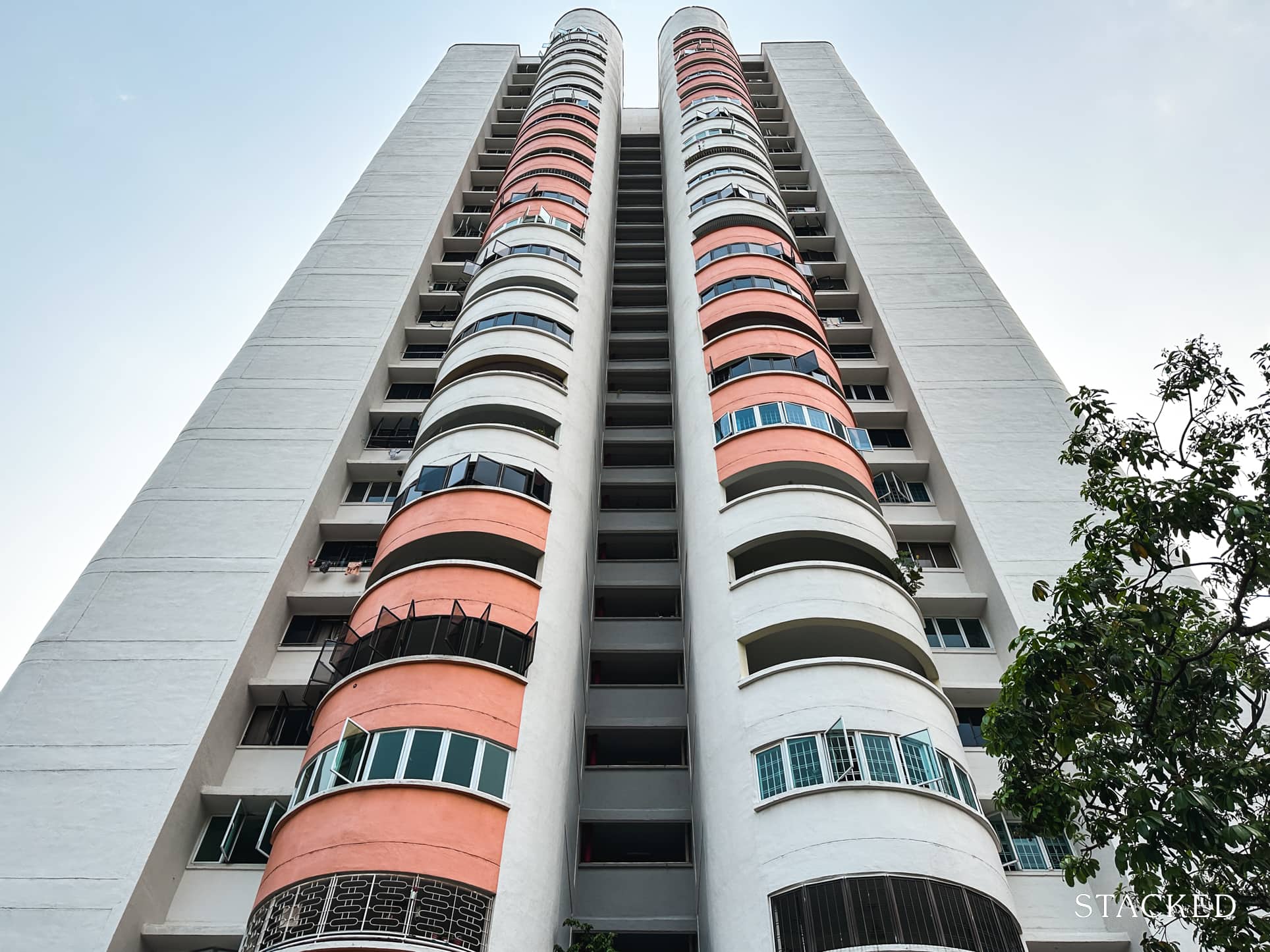
The good part about resale flats is they’re already built, and you can move in immediately. The bad part is that, for older flats, wear and tear can cause substantial problems later; and any extensive renovations (which are also more necessary in old flats) can aggravate these problems. If you do decide on an ageing flat nonetheless, you might be able to dodge the worst problems by looking out for the following:
So many readers write in because they're unsure what to do next, and don't know who to trust.
If this sounds familiar, we offer structured 1-to-1 consultations where we walk through your finances, goals, and market options objectively.
No obligation. Just clarity.
Learn more here.
1. Inspect wet areas like the toilets, or under the sinks, first
This is where leaks are most likely to happen. With toilets, you can usually spot these as discolouration or streaks along the walls or ceiling. Under sinks, you may find damp or discoloured spots under the sink pipes.
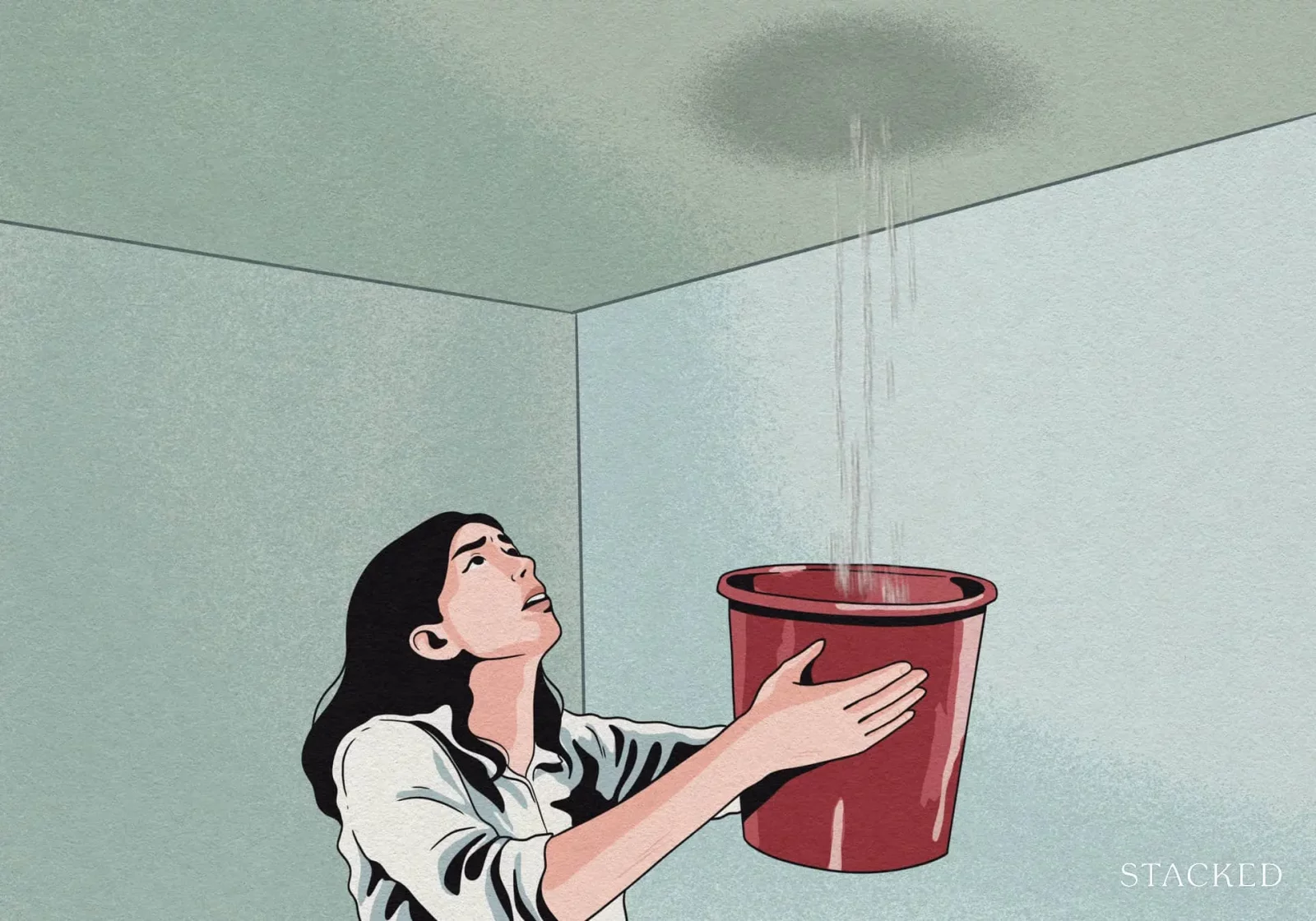
The worst problem is usually leaks coming from your upstairs neighbour. This requires you to coordinate with the people upstairs to fix the issue. That means splitting the cost incidentally, not that they’re liable to pay it. We would swing by upstairs to see what the neighbours are like: if they’re the aggressive or grouchy sort, you know this is going to be a problem.
As for the town council, they’re only responsible if your leak is from the roof of the block (i.e., it’s the topmost unit), or if your unit is on the second floor and leaking into the void deck. Even so, you’ll be expected to split the bill with the town council.
As these issues are quite troublesome to deal with, you may want the seller to deal with them before you agree to buy.
2. Check the balcony’s exposure to rainwater
Some older HDB flats (as well as some unique ones like DBSS flats) may have rather large balconies. These parts of the flat are the most exposed to the weather, and can be hard to maintain. In particular, you want to avoid balconies where there’s poor drainage, or where excessive amounts of water get in. Look for stains along the edges of the balcony, or discoloured patches; these may be signs of accumulated water.
Also look out for cracks, or rust on metal railings. If you have children, remember that corroded metal can cut skin, if they grab at the railing. You might also want to give railings a good shake, to ensure they’re secure.
3. Get an informed opinion on any long cracks (spalling concrete)
Spalling concrete came into the spotlight in 2020, when a chunk of concrete – from an ageing 45-year-old flat – injured a boy in the toilet. Spalling happens when corrosion of the embedded steel (through rust) expands and pushes out against the surrounding concrete. This first appears as cracks or chipping; but give it enough time, and a whole chunk of concrete can come off.
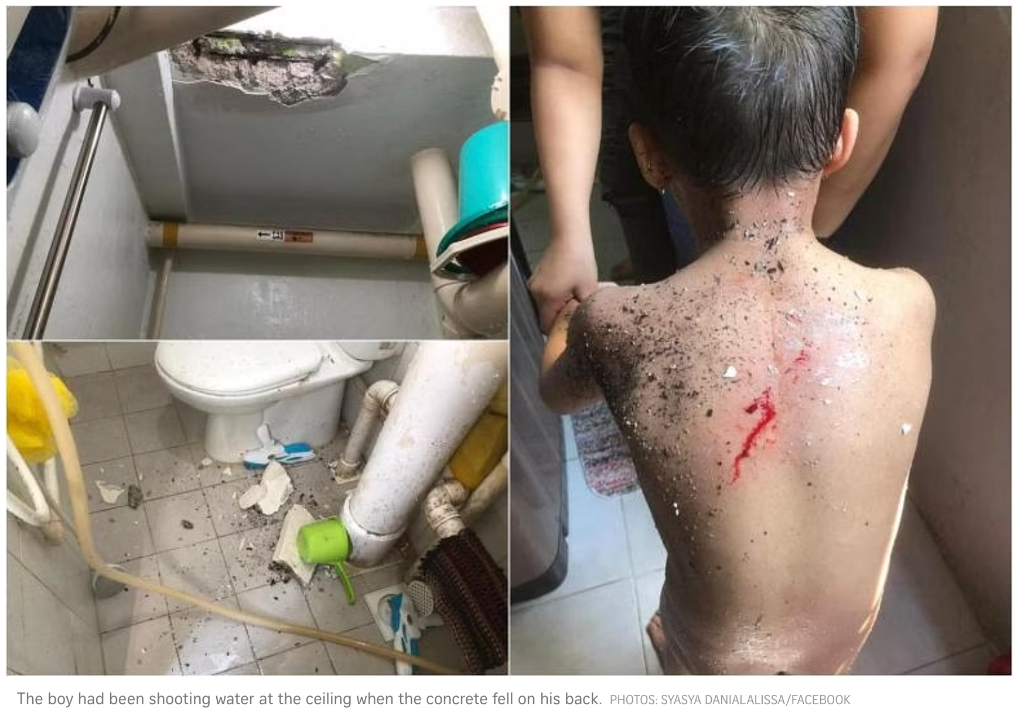
It’s quite hard to tell between minor cracks and chips, or a major spalling issue about to happen. If you can, have a contractor take a look before you buy. It may end up being trivial (just something to paint over), or it might mean a pricier repair job, which you’ll want the seller to handle.
As an aside, do check outside the exterior of the unit as well. Spalling can also occur on the outside of your flat, such as under a window, near your main door, etc. A fair warning to those who hate red tape: you’ll probably need to contact the town council to fix these.
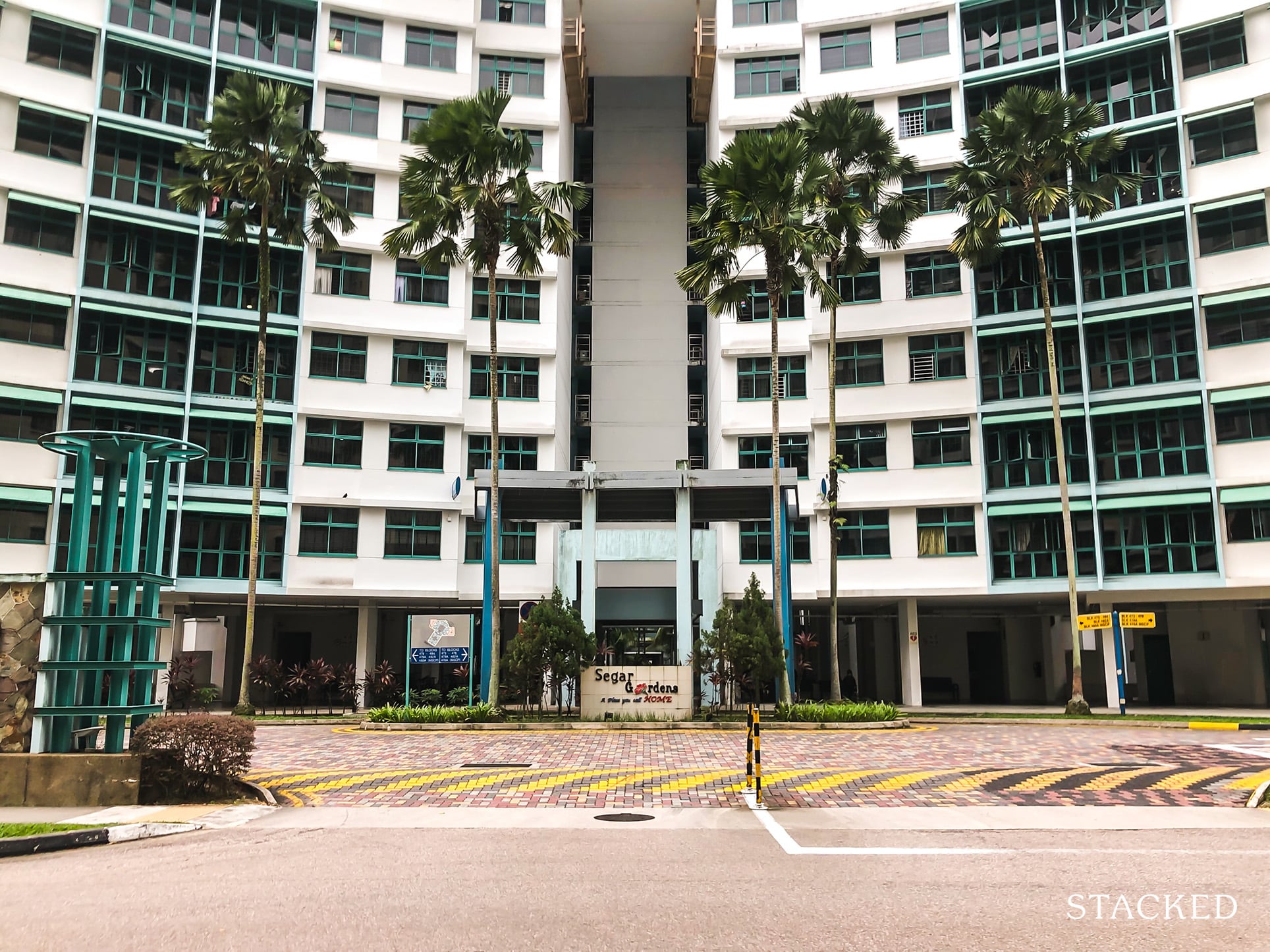
Property AdviceWhat To Look Out For At A Resale HDB Viewing: A Step-By-Step Walkthrough (With Pictures)
by Sean Goh4. Check the window frames
The worst nightmare is a window falling, because the flat owner is liable for that. HDB requires flat owners to check the windows every six months – but if you’re buying a resale flat, the previous owner may have been less than thorough. Check that the window tracks and screws aren’t so badly rusted, you might need to replace the whole assembly.
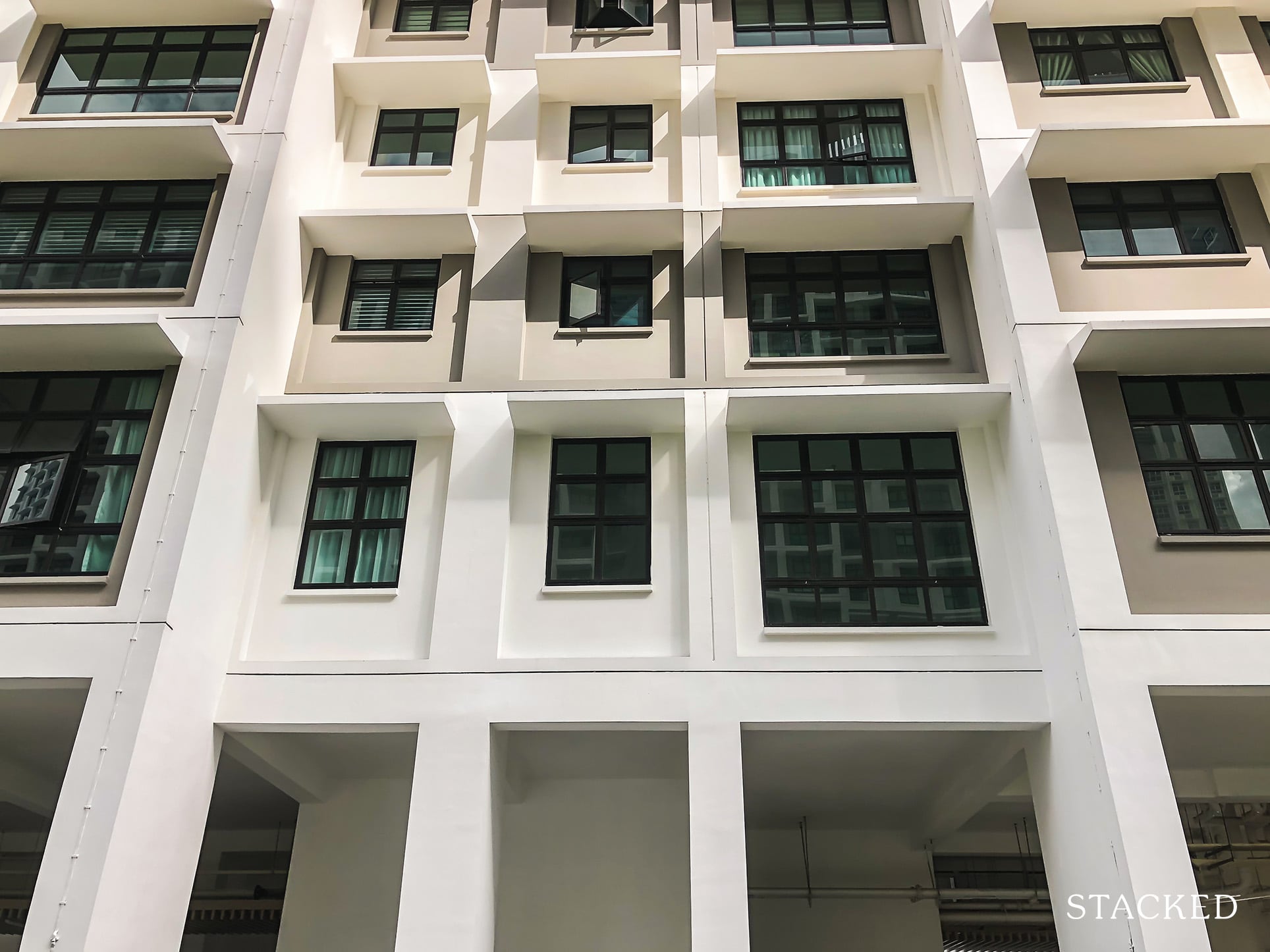
A bigger problem though, is if your window height isn’t permitted. We have the full story here, of a flat buyer who spent around $10,000 because of the windows. The window height must be at least one metre off the floor, and if it isn’t… well, you may need to engage a Professional Engineer (PE) if you want to replace it.
5. Uneven flooring or popping tiles
There’s a misconception that HDB will always replace these for free. To be precise, HDB will make goodwill repairs for tiles originally provided by HDB, if those tiles are not more than 15 years old. Old flats are long past this period, so you’ll have to engage your own contractor to fix the problem. This is something you might want the seller to handle, before you buy.
Water absorption is one of the main causes of popping or cracking tiles; so you might prefer a flat where tiles aren’t used in the toilet, or other wet areas like the kitchen.
Also check the surface under popping tiles, “lumps” in laminated flooring, and other unevenness. If the floor under these materials is uneven, the same problem will just keep happening again.
6. For ground floor units, check the state of the disposal chute
Older flats have a chute that’s in the kitchen itself. While convenient, this tends to result in pest problems; and it’s the absolute worst at the ground floor (this is where all the garbage for the block piles up.)
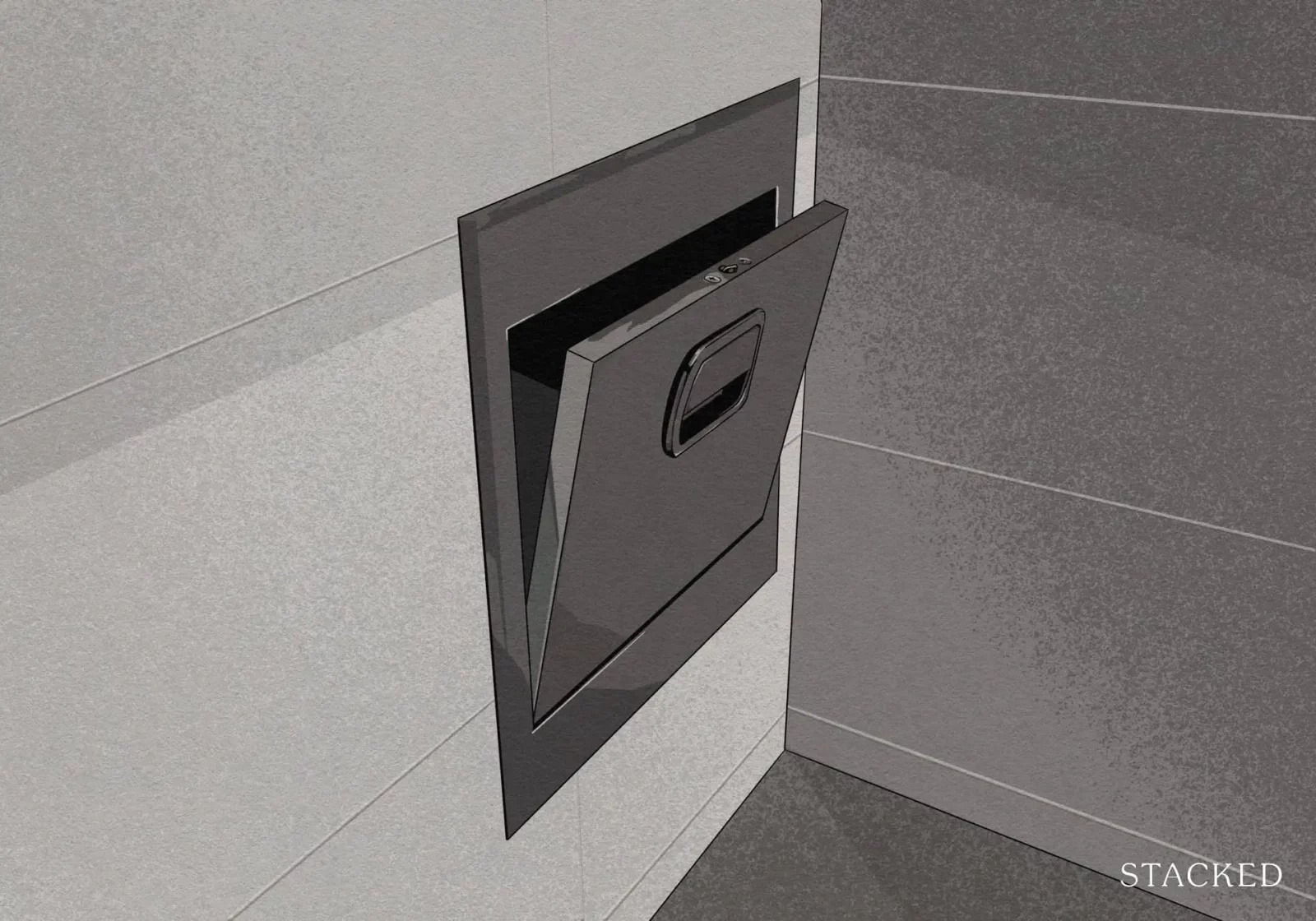
In some older units, the chute is not as well closed up as it should be. This results in cockroaches or other vermin creeping into the kitchen. There’s also a possibility of the garbage chute stinking up your interior.
We know some homeowners who simply seal up the chute and never use it anymore – but if you don’t want to deal with this problem at all, be sure to check it before buying.
7. Check that the plumbing is fully functional
Old flats are more prone to choked pipes. If this doesn’t result in leaks, it can result in other issues like low water pressure, a long time for anything to wash down the drains, or a nasty odour from the corroded pipes.
Some of these are easy to check: flush the toilet a few times, or turn on the faucet, to check the water pressure. However, some other problems are harder to detect. Undetected leaks can, for instance, result in unusually high water bills – even if you don’t see any immediate dripping or puddles.
You may want to ask the seller or agent when the last time plumbing work was done; and also what kind of work was involved.
If you’re in doubt, reach out to us at Stacked. We can put you in touch with the relevant experts, so you don’t find any nasty surprises. You can also follow us for news and trends in the Singapore property market.
At Stacked, we like to look beyond the headlines and surface-level numbers, and focus on how things play out in the real world.
If you’d like to discuss how this applies to your own circumstances, you can reach out for a one-to-one consultation here.
And if you simply have a question or want to share a thought, feel free to write to us at stories@stackedhomes.com — we read every message.
Ryan J. Ong
A seasoned content strategist with over 17 years in the real estate and financial journalism sectors, Ryan has built a reputation for transforming complex industry jargon into accessible knowledge. With a track record of writing and editing for leading financial platforms and publications, Ryan's expertise has been recognised across various media outlets. His role as a former content editor for 99.co and a co-host for CNA 938's Open House programme underscores his commitment to providing valuable insights into the property market.Need help with a property decision?
Speak to our team →Read next from Editor's Pick

Property Advice We Sold Our EC And Have $2.6M For Our Next Home: Should We Buy A New Condo Or Resale?

Editor's Pick Happy Chinese New Year from Stacked

Property Market Commentary How I’d Invest $12 Million On Property If I Won The 2026 Toto Hongbao Draw

Overseas Property Investing Savills Just Revealed Where China And Singapore Property Markets Are Headed In 2026
Latest Posts

Singapore Property News I’m Retired And Own A Freehold Condo — Should I Downgrade To An HDB Flat?

New Launch Condo Reviews What $1.8M Buys You In Phuket Today — Inside A New Beachfront Development

Overseas Property Investing This Singaporean Has Been Building Property In Japan Since 2015 — Here’s What He Says Investors Should Know






































0 Comments